By HANK ESO
Enugu Rangers FC was the rallying point in a post-war environment. Its accomplishments were based on talent, enterprise and hardly ever on executive fiats, such as federal character or derivation…but Rangers owed much of its accomplishments to Vasco Da Gama FC, and both teams also owed much to J.B. Ogufere, who wrought the rivalry that led to soccer excellence.
Join our WhatsApp ChannelREAD ALSO: FIFA, Saudi Arabian Oil Company Sign Deal For 2026, 2027 World Cups Sponsorships
Somewhere in the deeper recesses of Independence Layout in Enugu, is J. B. Ogufere Street. It is named in a well-deserved honor of Chief Jonathan Boytie Ogufere, a longtime resident of Coal City, who though from Edo State (former Bendel State), is perhaps, so well-regarded and better known in Enugu and the environs of the south-east and south-south zone of Nigeria than most people who are the so called sons of the soil.
“J.B.” as he is popularly known, is a debonair, diminutive but assured gentleman, who had vision, commitment, good ideas and management skills and a good eye for soccer talent; and both as an administrator and enthusiast, contributed in no small way to the transformation and professionalization of football in Nigeria. In recognition of his role in the evolution of Nigerian football and his acumen, he served on several NFA boards and was the President of the West African Football Association, (WAFU) from 1988 to 1994.
Chief Ogufere was a sports enthusiast, who had a fulltime day job in the immediate post-civil war years in Enugu as the Controller of the Post and Telegraph Department in the former East Central State, but also had football as a passionate hobby. His day job aside it, was his love of soccer that would define him, redefine the way soccer was played in Nigeria and proved how a dose of healthy competition and fair play could change a political landscape. Ogufere may no longer be a household name in Nigerian soccer as he was in the 1970s and 1980s, but that is the nature of how things are done in Nigeria. In any other country, he would have been inducted into the football hall of fame. So, what exactly and how did J.B. Ogufere change football in Nigeria? Well, first let us get the basic premise out of the way.
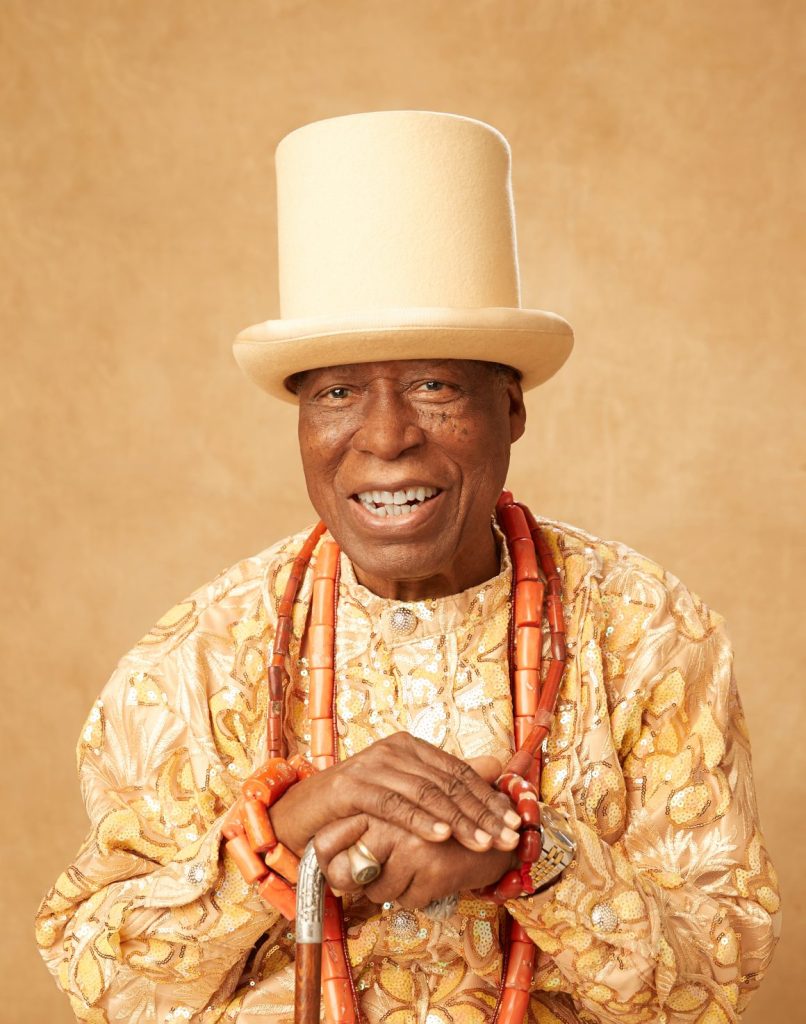
Football rivalry and derbies are phenomenal and passionate, if not fanatical events. Every football loving country, every region and city has its historical tales of such rivalries. Such dispositions tends to breed devotion, but they were by-and-large, healthy, peaceful and everyday good old fashion rivalry, where people had favorites teams and offered their unfettered support to such teams rain or shine.
Generally, only big cities tend to afford two big football teams and sufficient loyal crowds in-between. In Brazil, Italy, Germany, Spain, Argentina, Franc and Portugal, for instance, such in-city rivalries are commonplace. The City of Manchester is perhaps a good example. It has two equally good teams: Manchester United FC and Manchester City FC. Milan, Italy is another worthy example, with A.C. Milan (Associazione Calcio Milan) and Inter-Milan (F. C. Internazionale Milano) coveting the same space and loyalty of fans for over a century. A game any day between these two teams is frequently no-holds-barred in a charged atmosphere.
In Nigeria, the same is true, even if at the earlier stages of professional football it seemed that only Lagos could afford two big name teams or more. Most cities, Jos, Kano, Port-Harcourt, Ilorin, and Aba were content with supporting just one home team. Lagos boasted of the legendary Stationary Stores FC, A.C.B. FC and the ECN (later NEPA) FC. Ibadan boasted of Leventis United FC and IICC Shooting Stars FC (former WNDC FC). In Benin and Enugu, the story was different. The Bendel Vipers, later Bendel United FC, in time had to contend with the fierce rivalry of the New Nigerian Bank FC for the loyalty of the Benin-City fans. In Enugu the story was entirely different in the post-civil war days, no little thanks to the man called J.B. Ogufere, who was by far popular in Enugu than his namesake and the other J.B. –James Brown, the Godfather of Soul.
Although the most unlikely setting for such competition, residents of post-civil war Enugu, who like the rest of the Igbo nation, felt disenfranchised economically, were striving to survive and had as their lone succor, the emergence of the Ranger International FC of Enugu. Rangers were like a carryover from the win-the-war effort. There was some purity about the emergence of the team like a sphinx would from the ashes and nothingness. The Igbo nation claimed full ownership and its unalloyed loyalty to the team and the teams reciprocated in turn with its consistently assured performance. Though not by plot, members, staff and supporters of the team were all essentially Igbo.
The Rangers (Flying Antelopes) excelled against all odds and despite the poor infrastructure, were always elegantly dressed in all white jerseys, shorts and socks; only the boots were black. They also played immaculate and Brazilian-type of scintillating “don’t dirty” football that at the end a ninety-minute game some of the players would not have any stains on their uniforms. More importantly, Rangers won games in the most classic ways. They did so locally and in international fixtures regardless of whether be they were friendlies or FIFA sanctioned engagements. It was through Rangers that Nigerian fans became familiar with teamed like Dundee United, Mehala FC and Zamalek FC of Egypt, Canon Sportif of Yaoundé and Asante Kotoko and Accra Hearts of Oaks of Ghana.
Soon, Rangers International became a dominant team, not just in the Eastern Nigeria but in the entire nation and a name foreign teams and scouts noted. Just two years into its formation and the end of the civil war, the Rangers under the watchful eyes of Coach Dan Anyiam and Local FA Boss, Jerry Enyeazu, were the finalists in the much-celebrated 1971 Challenge Cup Finals against WNDC and Amusa Adisa, who saved Godwin Achebe’s penalty kick in the dying minutes. Rangers would go on to win the Nigerian Premier League five times in 1974, 1975, 1981, 1982, 1984 and the Nigerian FA Challenge Cup in 1974, 1975, 1976, 1981, 1983 and the African Cup Winners’ Cup in 1977. But J. B. Ogufere was a believer in free enterprise and keen competition. He respected Rangers and their accomplishments but believed he could build a team that would could break their dominance and set about to do it. In tribute to him and Vasco, fans camped outside the Enugu Stadium the night before any Rangers-Vasco match which was always sold out, in order to purchase entry tickets.
Many Nigerians believed then, a fact that seem to have gained validity in recent times that it was the residual “Biafran fighting spirit” that propelled the Rangers to great heights that assured their years of dominance. These days many decry the loss of Rangers luster, its moribund fighting spirit and the general lack of commitment and the excellence and dominance for which the Rangers were known and feared. But such evaluation is incomplete and misses a key point. Every engine has a driver – so, what was Rangers’ driver? In short, the answer is Vasco Da Gama FC, which literally blossomed under the watchful eyes of J.B. Ogufere and gained immense fame, confidence and determination to beat the Rangers several times.
Rangers FC is now four decades old and Vasco Da Gama FC defunct; but both teams owed their respective successes and accomplishments to each other and their unfettered rivalry. To Rangers, Vasco was like a younger, audacious and irritating sibling, who felt overshadowed and was trying to self-actualize and come of age by all means. Despite, the rivalry, there was also camaraderie. Over the years, most of the players in the Rangers and Vaco Da Gama teams came out mostly from the same high schools, or played on the same State Academicals Team. Several were in the same Green Eagles camp or team at the same time. There were personal friendships and kinship, but that espirit de corps ended once the Rangers donned their white jerseys and Vasco Da Gama put on their all-red outfits for a local derby. Interestingly, by 1972, the new crop of players recruited by either Rangers or Vasco, all belonged mostly to the East Central State Academicals that won the Adebajo Cup the year before. That renowned team, which upon return to Enugu had beaten the famed Rangers 3-1 in a friendly, was to form the nucleus of that emerged as formidable Rangers FC and Vasco FC teams.
In its forty years, many notable names that played for Rangers in both the professional league which was established in 1972 and National Challenge Cup (now Federation Cup) were legions, but several names stood out, including: Godwin Achebe, Chukwuma Igweonu, Cyril Okosieme, Shedrack Ajiero, Dominic “Alhaji” Nwobodo, Emeka Onyedika, Ernest Ufele, Nwabueze Nwankwo, Charlie “Mortimor” Okorigwe, Stanley Okoronkwo, Ogidi Ibeabuchi, Aloysius Atuegbu, Mathias Obianika, Dominic Ezeani, Christain Chukwu, Godwin Odiye, Johnnie Azinge, Benji Okorogu, Nwachukwu Onyekwelu, Chimezie Ngadi, Emmanuel Okala, Kenneth Abana, Kenneth Ilodigwe, Godwin Ogbueze, Nnamdi Anyafor, Frank Foster Ikeagu, Patrick Okala, Chukwuma Onyeaghala, Okechukwu Isima, Nnamdi Nwokocha, Damian Odoh, John Uwanaka and Chike Ikebuaku, Kenneth Boardman, Kingsley Ogbodo, and later stars like Kelechi Emetole, John Ukata, Taribo West, Jay-Jay Okocha and Bright Omokaro.
On the Vasco Da Gama side there were equally notable names, if only fewer, such as Pat Obinwa, Okey Emordi, Patrick Ekeji, Johnny Nwadioha, Obed Ariri, Ahmefula Umelo, Christain Obi, Paul Chibuzor , Festus Agu, Uche Akubuike, Kevin Owana, Henry Nwosu, and John Chiedozie. It was to these players and their benefactor, Chief J.B. Ogufere that Enugu Rangers owed much of their accomplishments and impetus to succeed. Rangers had the support of individuals like Jim Nwobodo, Julie “Madam Rangers”Alale and broad fan base; but the Rangers management and players also knew that their ticket to Lagos for any cup final or for a campaign abroad meant overcoming first, the challenge and baptism by fire of conquering Vasco. Indeed, it was always Vasco, more than any other team that brought out the best in Enugu Rangers.
Rangers in the end proved to be the luckier team than Vasco. However, their dwindling performance over the years can easily be traced to the ill-fortunes of Vasco Da Gama FC, which started encountering management support problems following the merger of their parent body and owners, Post & Telegraph Limited with the Nigerian External Telecommunications Limited (NET) in the mid -1980s and the consequent departure of J.B. Ogufere to Lagos. By the earlier 1990s, Vasco had lost its soul, luster and bite and fell to the Second Division of the Nigerian Premier League. After struggling for two seasons at that level between 1995 and 1996, the team was disbanded in November, 1996. The disbandment ended a glorious era, but it also began the lackluster era of Ranger International FC, and a period which the team was challenged and beaten by all comers in the League, even though it has managed to stay in the Premier Division all through. Ironically, there was no major effort in Enugu to save Vasco, which many viewed as the Rangers nemesis and therefore wished good riddance. That was a big mistake. Absent an expansion, Vasco’s slot on the league table was quickly bought by the Akwa Ibom State.
Unquestionably, Enugu Rangers FC was the rallying point in a post-war environment. Its accomplishments were based on talent, enterprise and hardly ever on executive fiats. But Rangers owed much of its accomplishments to Vasco Da Gama FC, and both teams also owed much to J.B. Ogufere, who wrought the rivalry that led to soccer excellence by believing that Vasco Da Gama FC could be as good as its Brazilian namesake, and gave the team his imprimatur and unfettered support, while he was in Enugu. That seamless support rubbed off positively on the Rangers, which unceasingly used Vasco and its measuring and lighting rod.
It might not have been very clear to some, but looking back now, many would appreciate that it was the Ranger-Vasco combination and rivalry that led to the excellent performances by both teams. Absent one, the other floundered. With the two teams present in Enugu then, there could be no divided loyalties; it was Rangers or Vasco and no buts, middle ground or neutrality. One could not be neutral without risks. But there was the flip side, every young player, even those who played in the so-called “Mosquito Teams” and the youth farm teams, the “Greater Tomorrow”, all wanted to play for Rangers. Thus, recruiting players into Vasco was a hard task and keeping them even more onerous; but a task still made possible by Ogufere’s perseverance and personal involvement. Where Rangers was the ruling party, Ogufere ensured that Vasco was the formidable opposition and never a walk over. That attitude and commitment made all the difference. The rest as they say is now history. Up Ranger! Long live the very pleasant and cherished memories of Ranger vs. Vasco derbies. Those, indeed, were good old days in the annals of Nigerian football. What a difference one man with determination and commitment and vision can make!
This was article was earlier published in May 2011.




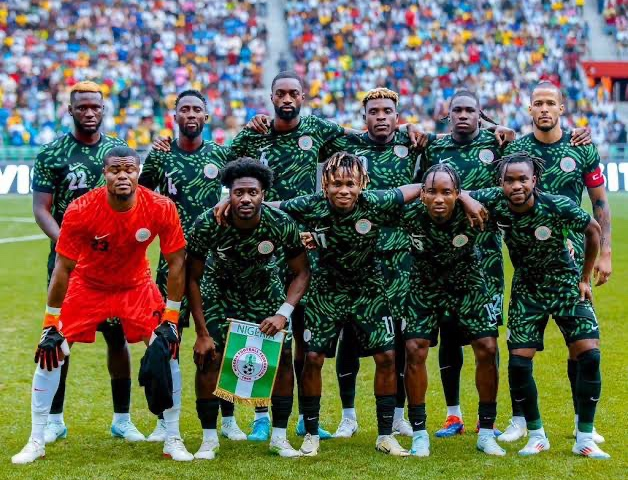
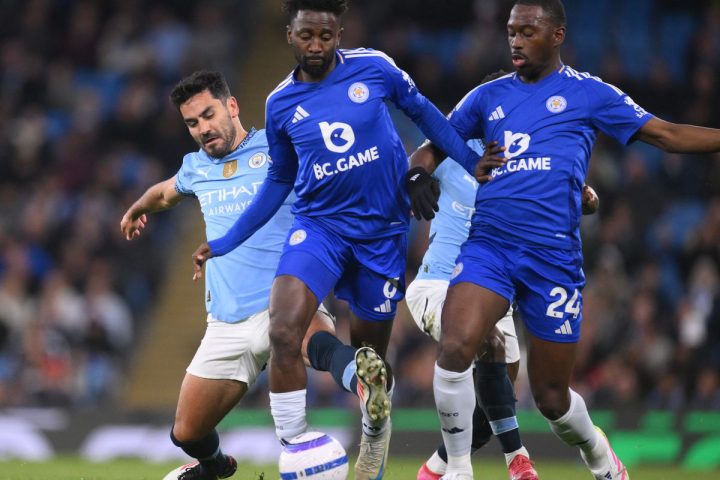
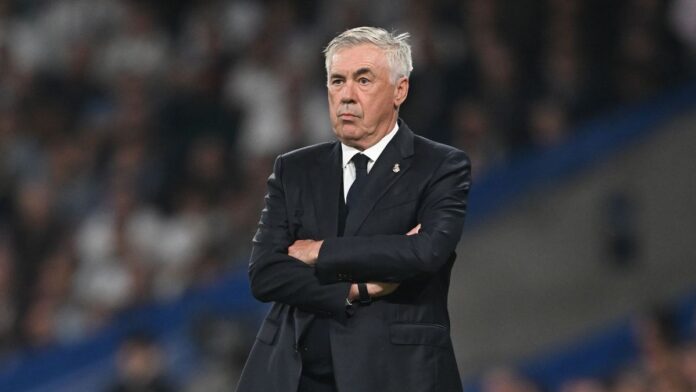




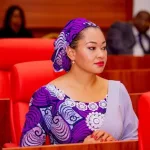


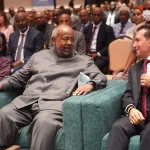
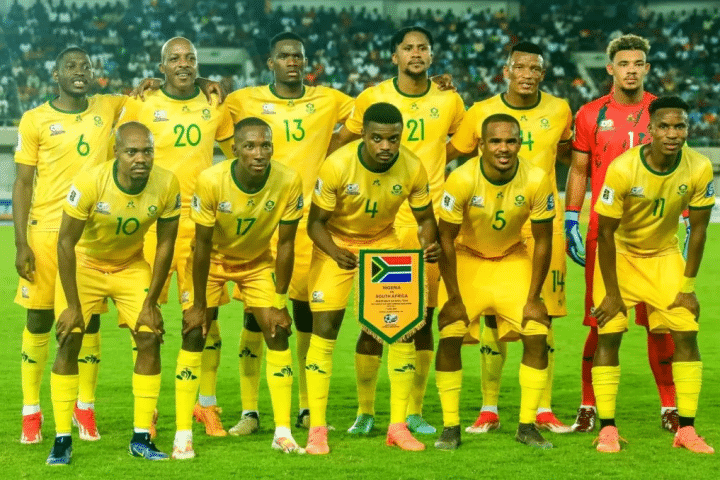
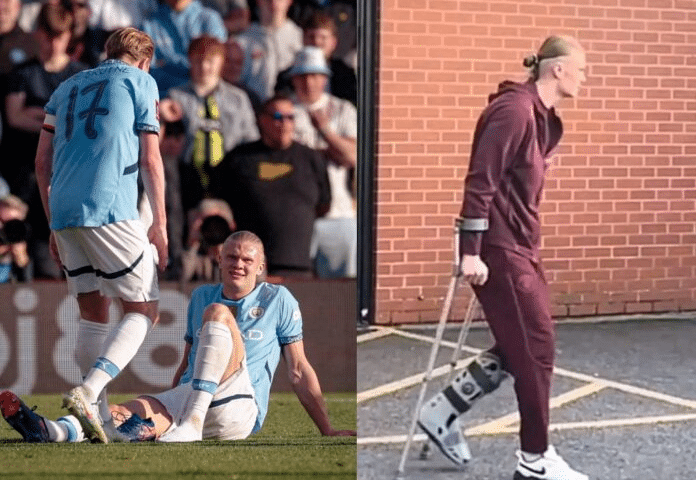
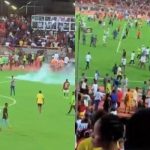
Follow Us